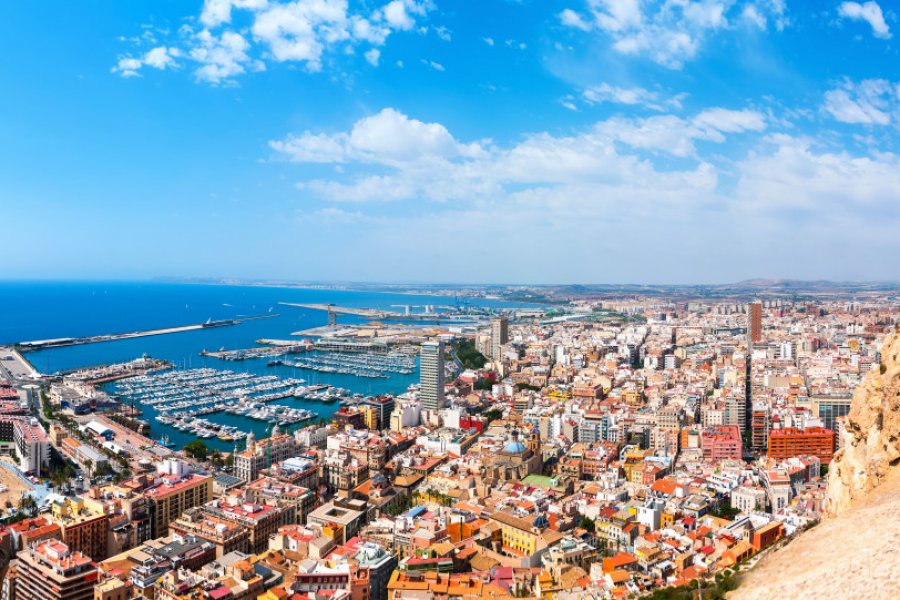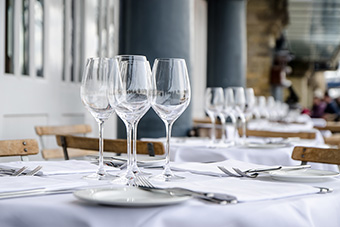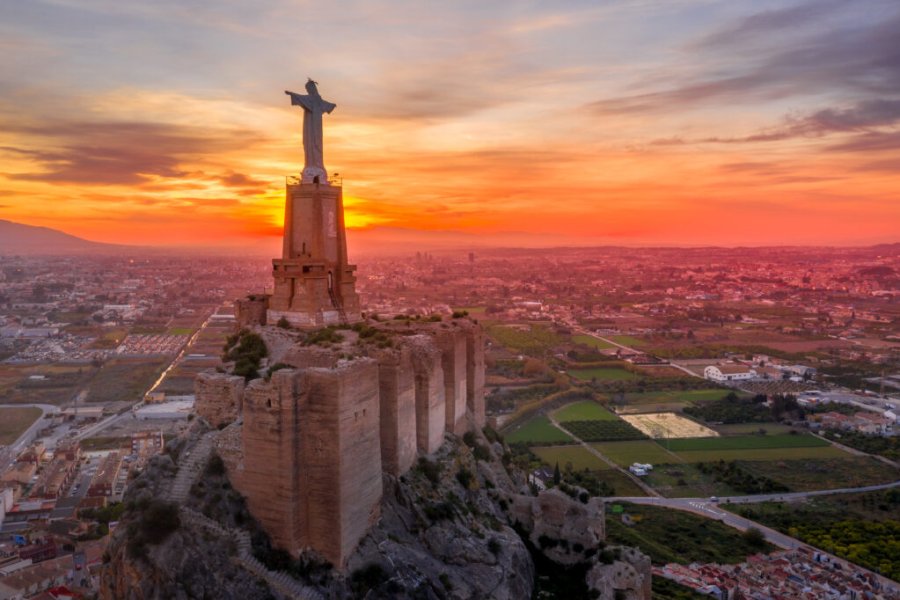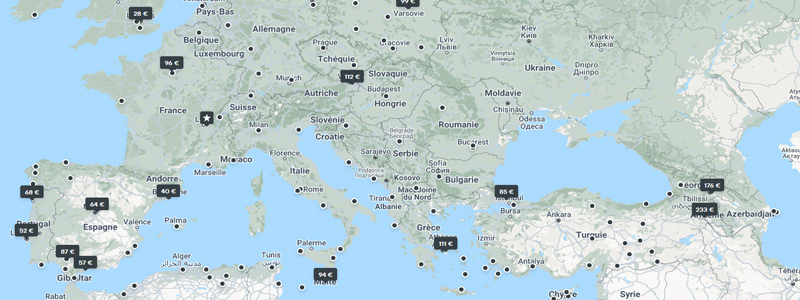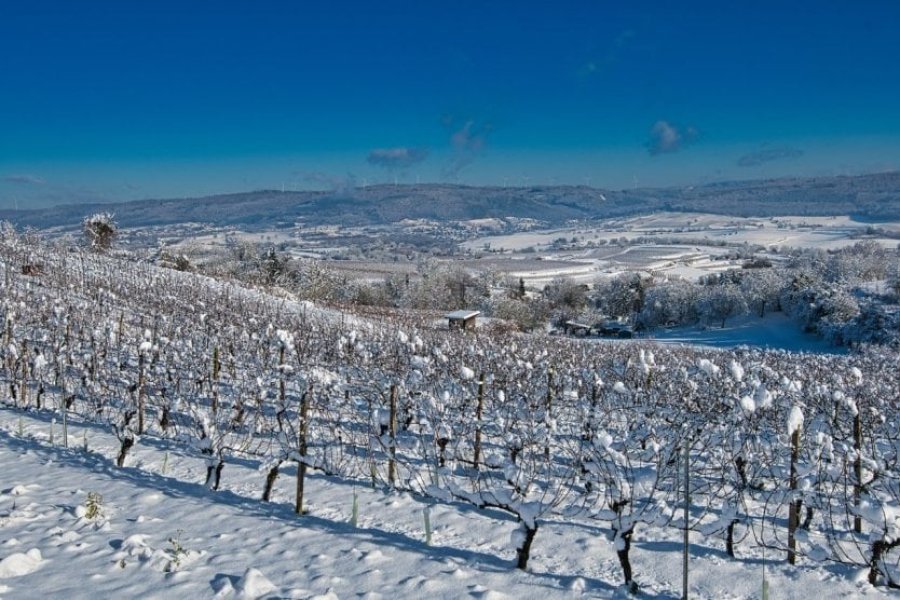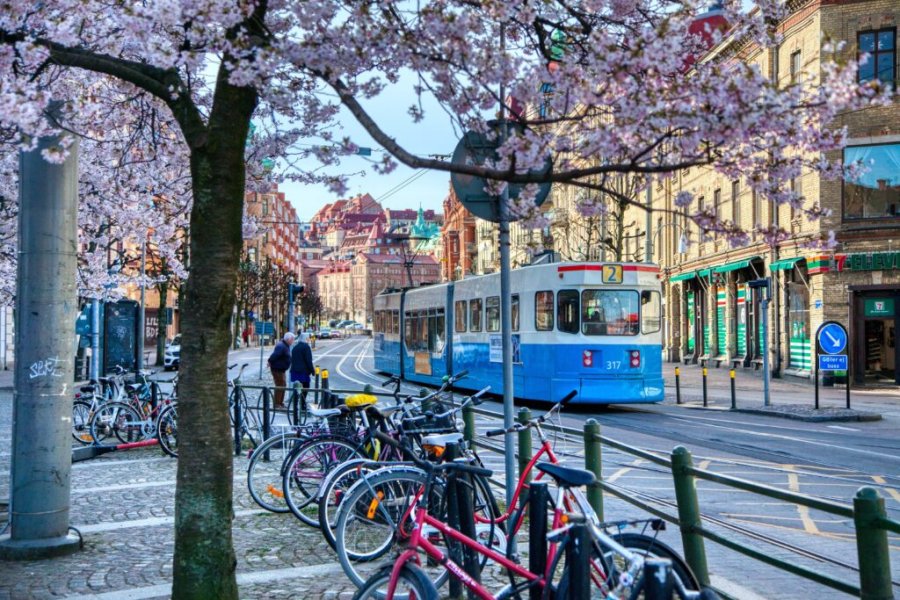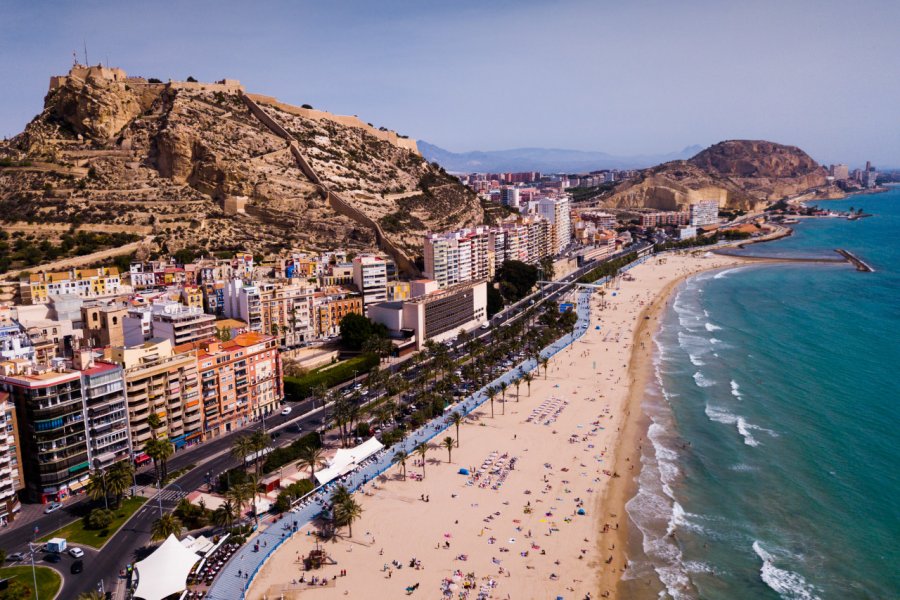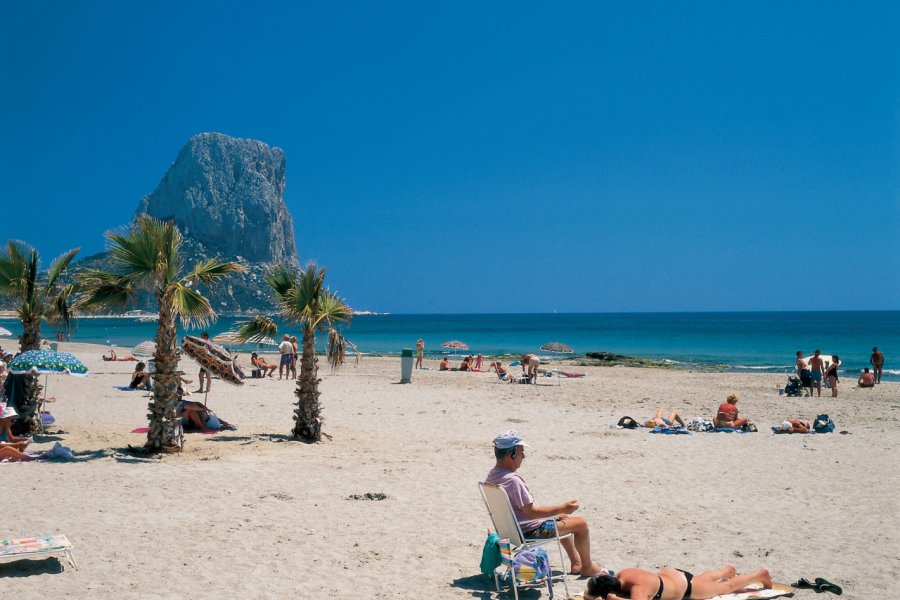Travel Guide Alicante
Alicante is located on Spain's east coast, the Costa Blanca. It combines the deep blue of the Mediterranean with the rich heritage of the Iberian Peninsula. As soon as you arrive, the Santa Barbara castle, which overlooks the city, offers a breathtaking view of the sparkling coastline. A silent witness to the city's many sieges, this medieval edifice on Mount Benacantil was once the home of the notorious pirate Barbarroja. Legend has it that secret tunnels, now inaccessible, link the castle to strategic points in the city. Discover all the sites to visit and the finest accommodations with our Alicante Travel Guide.
Continue on to the Barrio de la Santa Cruz, where colorful houses stand side by side with cobblestone streets and flower-filled staircases, for a true immersion in Spanish charm. Beyond its golden beaches and palm trees, Alicante has a rich history of invasions, reconquests and piracy. As you stroll through the Barrio de la Santa Cruz, you'll no doubt notice the colorful crosses on the ground. They are a reminder of ancient religious processions, a ritual that goes back many centuries. Each cross has its own story, often linked to a particular family or event. The archaeological museum traces Alicante's rich and varied past.
Are you a nature lover? The Las Lagunas de La Mata nature reserve will amaze you with its pink flamingos and hiking trails.
Alicante's gastronomy also has its own anecdotes. Did you know that turron, a sweet made from almonds and honey, was introduced by the Moors in the 8th century? Today, it's a staple on Spanish Christmas tables. Markets such as the Mercado Central offer handcrafted turrons that are the pride of local producers. And, between the tapas served in the Mercado Central and the paella at Playa San Juan, gourmets are in for a treat.
Not far away, Alicante's Plaza de Toros is one of the oldest bullrings still in use in Spain. Inaugurated in 1849, it has seen legendary matadors such as El Gallo and Manolete take on the bulls to the cheers of the crowd.
Alicante is also a city of festivals and celebrations. If you visit in June, don't miss the Hogueras de San Juan, where huge papier-mâché sculptures are burned in the streets. This spectacular tradition dates back to the 18th century and celebrates the summer solstice. Then, in the evening, the port of Alicante comes alive. Here, among the yachts and fishermen, cocktail bars and trendy clubs open their doors for wild nights. And don't forget to make a detour to the famous island of Tabarca ! Accessible by boat, it offers turquoise waters ideal for diving. A getaway to Alicante is a plunge into the legends and stories that have shaped this fascinating city. Every street corner has a secret or anecdote for you to discover - it's your turn to unearth them!
What to visit Alicante?
When to go to Alicante?
Situated along the magnificent Costa Blanca, Alicante enjoys a sunny Mediterranean climate almost all year round. So when is the best time to visit Alicante?
From May to October, Alicante is at its tourist peak. Temperatures approach 30°C, particularly in July and August. Its beaches and coves are popular places to bask in the sun. For fiestas and cultural events, the month of June is ideal, punctuated by the Hogueras de San Juan celebrations, when huge sculptures are burned in a festive atmosphere.
However, to avoid the crowds, the period between April and June, followed by September and October, offers a pleasant climate and more affordable rates. You can explore Alicante's narrow streets, stroll along the Spanish Esplanade and climb Santa Barbara Castle without the pressure of high season.
The months from November to February determine the low season. If you go to Alicante in January, expect cooler temperatures, ideal for exploring the interior or sampling the local cuisine in a quieter atmosphere.
The best time to visit Alicante is undoubtedly spring and autumn, when the climate is mild and the atmosphere peaceful.
If you're in the mood for gastronomy,in March many restaurants offer special menus to mark the Alicante Rice Day.
Whatever the season, Alicante is a destination that will seduce you. Take your thirst for discovery with you and let yourself be carried away by the mild Mediterranean climate.
Weather at the moment
Mediterranean sunshine and mild seas are the hallmarks of Alicante. The pearl of the Costa Blanca enjoys a Mediterranean climate that ensures warm summers and mild winters. During the high season, from June to August, temperatures in Alicante easily exceed 30°C. The Postiguet beach and the historic Barrio Santa Cruz are a must.
The low season, from November to March, sees milder temperatures. They fluctuate between 12 and 20°C, making the city a more soothing place to explore. The autumn and spring months, meanwhile, are ideal for avoiding the crowds while enjoying favorable weather.
Alicante's weather is characterized by low annual rainfall, so visitors enjoy their stay to the full. As for the temperature in Alicante, it remains pleasant for most of the year, thanks to maritime influences that temper the excesses.
Discover a destination that offers good value for money! The currency used is the euro, and despite slight fluctuations, it remains relatively stable.
For those traveling in economy mode, there are many small local restaurants offering delicious tapas at affordable prices. In the comfort category, Alicante abounds with mid-range hotels and restaurants offering refined Mediterranean cuisine without breaking the budget. For a luxury experience, the city doesn't disappoint with its boutique hotels and gourmet restaurants.
Most establishments accept credit cards. However, it's always a good idea to have some cash on hand for the smaller shops. Gratuities, although not obligatory, are appreciated, especially in the restaurant sector.
As a Spanish city, Alicante follows Spain's entry formalities. For citizens of the European Union, a simple passport or valid identity card is sufficient for a stay of less than 90 days. Consequently, no visa for Alicante is required for these travelers.
However, for non-EU nationals, formalities may vary. Find out in advance about the specific requirements for your nationality.
If you are planning a longer stay or have specific requirements, it is advisable to consult the website of the nearest Spanishembassy or consulate for up-to-date and detailed information on formalities for entering and staying in Alicante.
And don't forget to check the expiry date of your passport. Even if you don't need a visa, a valid passport is still required.
Alicante is a safe city in terms of health, and no specific vaccinations are required. However, it is advisable to ensure that your universal vaccinations (diphtheria, tetanus, polio, whooping cough, hepatitis B) are up to date. In addition, depending on the length and conditions of your stay, additional vaccinations may be recommended. Before you leave, it's a good idea to consult your GP or an international vaccination center.
Drinking water in Alicante is of good quality and can be drunk straight from the tap. However, depending on your sensitivity, it may be preferable to drink bottled water, especially during the first few days of your stay, to avoid any minor digestive problems.
Alicante has well-stocked pharmacies and modern hospitals should you need them. However, don't forget to take out travel insurance to cover medical expenses and repatriation. Choose peace of mind for your Alicante getaway!
Practical information
- When to travel?
- Weather forecast
- Budget
- Formalities
- Health
- How to travel by yourself?
- How to get organized?
- Getting around
Media
How to go to Alicante? Our advice & tips
If you're looking for an all-inclusive packageto Alicante, you'd be wrong to miss out!
Choosing this option means benefiting from local expertise. For example, some offers include a visit to the Santa Barbara castle, which majestically dominates the city, or an excursion to the surrounding vineyards for a tasting of local wines. Organized tours also offer the advantage of company. You travel in a group, accompanied by a local guide. He or she will show you Alicante's hidden secrets, from its golden beaches to its picturesque alleyways.
Discover our selection of travel agencies for this destinationGoing it alone in Alicante, for an authentic, independent experience? Go for it! This Spanish city, bathed by the Mediterranean, offers a unique cultural immersion for those who know how to discover it.
Before you leave, find out more about Alicante's barrios or neighborhoods. Each has its own charm: from the picturesque El Barrio with its narrow streets, to the modern and lively Ensanche Diputación.
Cava (local champagne) is always tastier when shared with locals. Learn a few key phrases in Spanish or Valencian, such as ¿Dónde está la playa más cercana? (Where's the nearest beach?) or ¡Me encanta la paella! (I love paella!). The Alicante people will give you a warm welcome.
Lose yourself in the Mercado Central for fresh tapas, or walk along the Explanada de España while listening to the gentle sound of the waves.
Discover Alicante on your own, and you'll be enriched by encounters and anecdotes.
Getting around Alicante: Travel like a local!
Streetcar: this is the most popular way to get around among locals and tourists alike. The L1 is the most popular line, linking Luceros to the beautiful San Juan Beach district.
Bus : the bus network is very extensive. Most major lines pass through Mercado Central.
Bicycles : renting a bike for a day is a great way to explore the city while enjoying the good weather.
On foot : walking is a great way to enjoy the narrow cobbled streets and charming hidden squares.
Cabs: they're plentiful and reasonably priced. They're a great option for late-night journeys or to reach remote locations.
Local tip: if you plan to use public transport frequently, opt for a multi-trip card. Not only does it offer a better fare, it also avoids the hassle of having exact change for each journey.

